An overview of Personality Disorders according to DSM-5 and an attempt to erase the stigma around them.
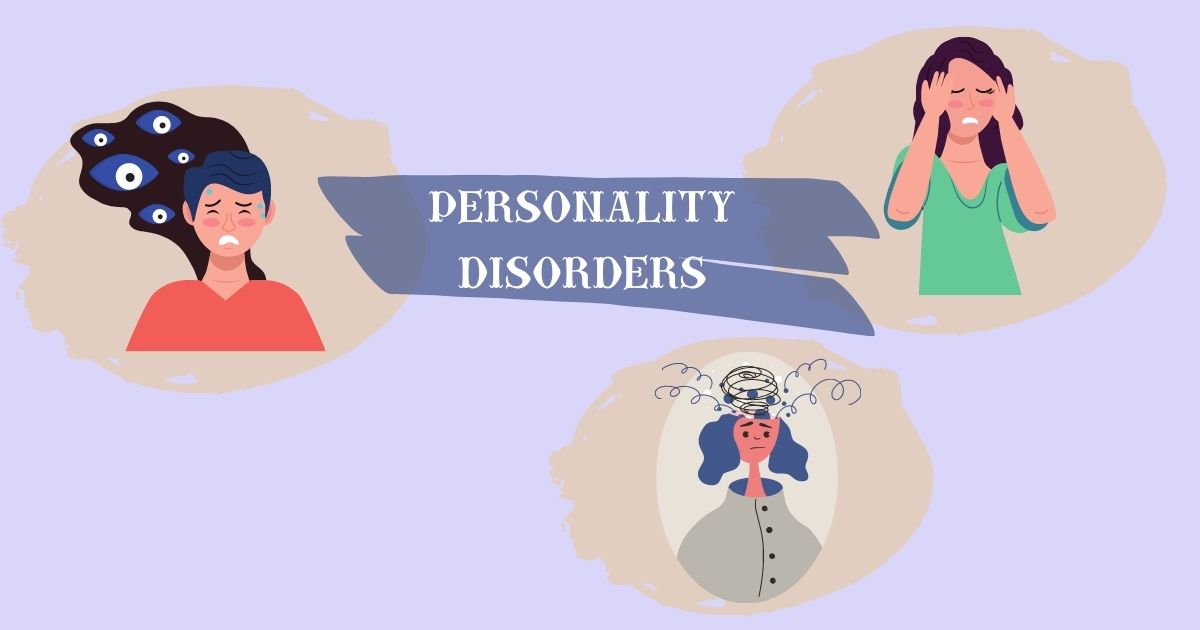
Summary of contents
- What is personality? What is a Personality Disorder?
- What does it mean to have a Personality Disorder?
- What are the types and symptoms of Personality Disorders?
- Group A
- Group B
- Group C
- Treatment
- Why are Personality Disorders so stigmatized? Where does the stigma come from?
- How does stigma affect?
- How to fight the stigma around Personality Disorders?
- In conclusion
What is personality? What is a Personality Disorder?
To define a disorder of personality, we need first to define personality. Personality comes from the word ''persona'' of Latin origin, referring to a theatrical mask that artists used to wear to hide their identities or incarnate different roles in plays. Personality consists of characteristic patterns of thoughts, feelings, and behaviors that a person has and shows. Ιt is the continuity and consistency of these that make a personality stable.

The science of psychology gives us a plethora of approaches (psychodynamic, person-centered, sociocognitive, etc.) as to how personality is formed. The evaluation of research so far concludes that everyone's personality is due to both genes and the environment in which one grows and lives.
But what does it mean to have a Personality Disorder?
Perhaps, personality disorders are the most common psychiatric diagnosis and are characterized by difficulties in interpersonal communication, experiencing and expressing emotions, controlling impulsivity, and how others perceive.
A disorder means that your personality is characterized by persistent and dysfunctional behavior patterns, perception, and interpretation of self and environment. Such patterns affect daily life, causing discomfort and dysfunction. A personality like this is considered a significant deviation from the cultural expectation for the individual personalities.

What are the types and the symptoms of Personality Disorders?
According to the DSM-5 criteria, personality disorders are classified into three group categories.
Group A
The person in this group of personality disorders tends to have difficulty relating to others and usually exhibits behavior patterns that most people will find strange and eccentric. Others may describe them as living in an imaginary world of their own and being distant or paradoxical.
Paranoid personality disorder
- Discomfort due to constant and generalized suspicion of others and their motives
- The patient is reluctant to disclose personal issues and personal information
- The patient is sensitive to the criticism and opinion of others and becomes easily hostile when confronted with actions or comments that they perceive as insulting to their character or dignity
- They often doubt the loyalty of their co-workers, friends, or partner by examining their every move
- Difficult in their interpersonal relationships: they are emotionally shallow and have short-term relationships; extremely suspicious of their partner and make scenes of jealousy
- Feel that others are making fun of them or trying to deceive them and deliberately exploit them
- Perceive themselves as very important and special
- They believe that whatever they say can be used against them
- A defensive attitude
- Not willing to forgive and forget
- Show belief in unfounded ''conspiracy theories''.
- Show paranoid thinking and sometimes verbal aggression and irritability
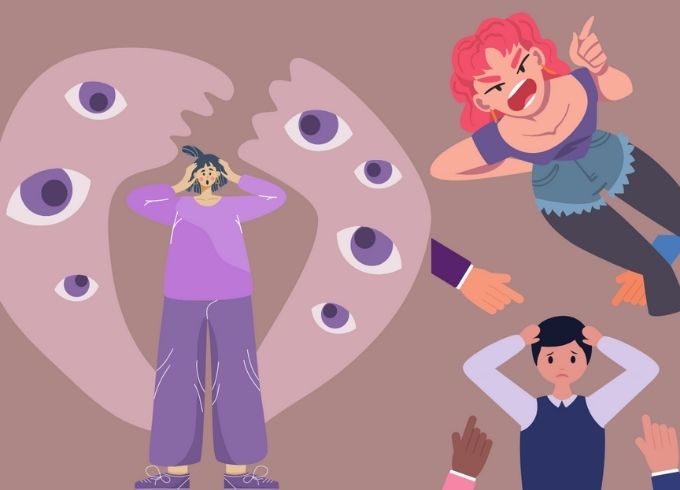
They are characterized by intensity, caution, and secrecy, while at the same time, they do not use humor and do not express their feelings. Because of this stressful situation, they may suffer from a psychotic episode, which will last from minutes to hours. Often when they work alone, they are very conscientious and efficient.
Paranoid personality disorder has absolutely nothing to do with Paranoid Schizophrenia. The main feature in which they differ is that there are no hallucinations of any kind in paranoid personality disorder, neither auditory nor visual, which is the main feature of schizophrenia and its subcategories.
Schizoid personality disorder
A schizoid personality disorder is associated with distance from social interactions and the minimal expression of emotions. This distance is something that the person seeks.
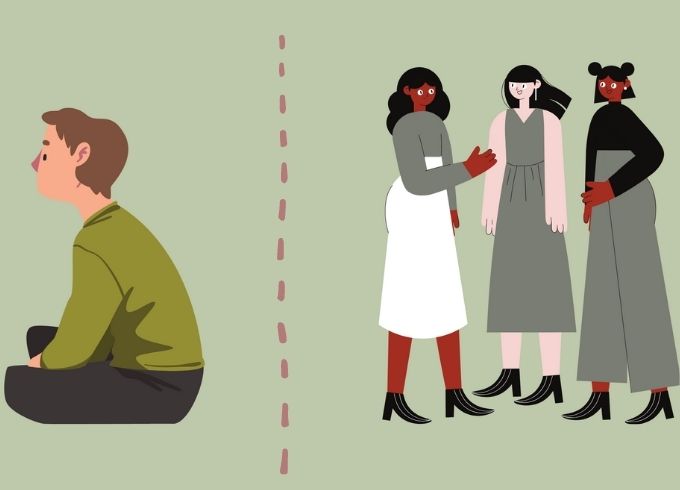
- Give the impression of a cold and distant person with a lack of involvement in everyday events
- Minimal need or desire for emotional bonds with others
- Engage in and enjoy minimal activities or abstain entirely from any activity
- When they choose an activity, they make sure it is solitary and does not include others
- They communicate strangely and are rigid
- Their interest in sexual experiences is diminished or non-existent
- They are lonely without close friends and usually meet only first-degree relatives
- Their criticism or praise is indifferent
- Their emotion is flat, and they aren't able to express tenderness, hatred, or anger
- They can not give or receive love
It is said that people with schizoid personality disorder have a rich inner world. Research has linked this disorder to creative geniuses, who excel in sciences requiring minimal human contacts, such as mathematics and astronomy. Memory and other cognitive abilities work exceptionally well. Sometimes these people may experience short-lived psychotic episodes lasting minutes to hours in response to stress.
Schizotypal personality disorder
- Have ideas of self-report or correlation that give the individual the feeling that they are the focus of events around them (the patient, for example, may believe that something they hear on the radio refers to them personally)
- Believe that they have particular superpowers (ability to predict or influence the future, telepathy, ability to read the thoughts of others, etc.) that are not in line with their socio-cultural environment
- They often have paradoxical sensory experiences that include physical hallucinations
- Show eccentricity in perception, speech, appearance, and behavior
- Their way of thinking and speaking is paradoxical; it can be vague, hyper-analytical, metaphorical, stereotypical, or elusive
- They are highly suspicious, and their thinking has paranoid features
- Emotionally, they are cold and distant
- Prefer social withdrawal; they do not have close friends and mainly communicate and socialize with first degree relatives
- When they associate with others, their social anxiety peaks, although this is more related to their paranoid way of thinking than to low self-esteem; intimacy does not limit their anxiety

It is estimated that sufferers make up 3% of the general population.
The schizotypal disorder can coexist with Borderline personality disorder. It is suggested the cultural environment of the individual be taken into account for the diagnosis.
Group B
People in Group B of personality disorders find it difficult to regulate their emotions and often alternate between positive and negative perceptions of other people. This can lead to patterns of behavior, which others often describe as dramatic, unstable, and annoying.
Antisocial personality disorder
Antisocial Personality Disorder is a relatively recent term for personality disorder formerly called "psychopathic," "sociopathic," or "difficult." Antisocial people may experience discomfort, inner tension, and a depressed mood.
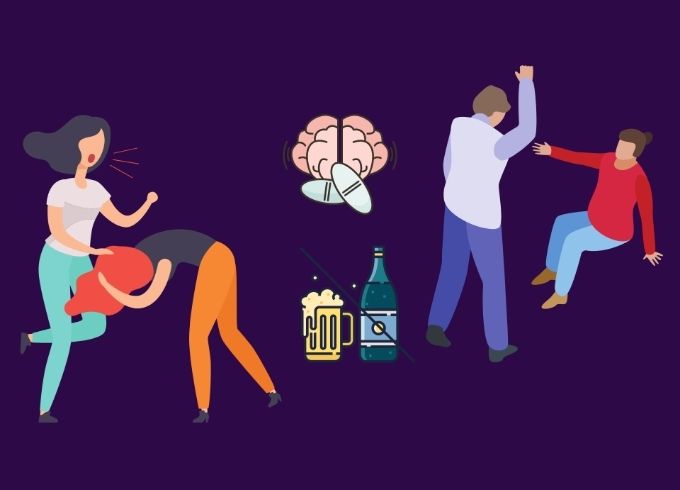
- Indifference to the rights of others
- Violation, non-compliance with rules of acceptable social behavior and laws
- The patient is impulsive, irritable & inconsistent
- Highly values power and wealth
- Inability to work consistently
- Exploitation
and manipulation of others - Inability for stable relationships
- Excessive usage of alcohol and other substances
People who have lived in a chaotic environment belong to this category and have suffered abuse and solid traumatic experiences. They become antisocial before the age of 15 by presenting symptoms such as aggression towards people and animals, destruction of property, or theft.
These individuals' sexual activity begins early and can be unusually aggressive or violent during adolescence. Their ability to manipulate can reach their level seem entirely normal in a psychiatric interview. They have multiple sexual partners and are particularly exploitative in their sexual relationships.
Parents can leave children hungry or not take care of them in general. They create a lot of debt cheat, and they can have been in jail.
Borderline personality disorder
Particularly characteristic is the reaction of these people to real or imagined abandonment. Once they feel that someone is leaving them, they are overwhelmed with fear, panic, anger, and rage because they can not bear to be alone and because abandonment may be perceived as rejection. In situations of intense stress, paranoid ideation, hallucinations, or intermittent symptoms (e.g., depersonalization) may occur temporarily.
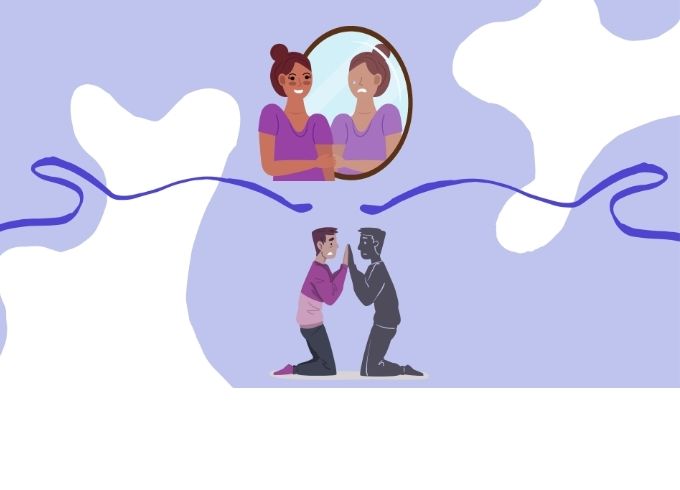
- Impulsivity and instability in interpersonal relationships, self-image, and emotions
- Patients can literally "stick" to people who can take care of them or to sexual partners and very quickly change as the defense mechanism of separation in this disorder is dominant
- Disturbed sense of identity with the instability of the image or sense of self; goals, professional aspirations, sexual identity, and friendships change abruptly and dramatically
- Desperate attempts to avoid an actual or presumed abandonment
- Interpersonal relationships characterized by idealization and demonization of the other person
- Impulsivity in at least two areas that are potentially harmful to the individual (e.g., dangerous driving, overeating, sexual freedom, substance usage, etc.)
- Repetitive suicidal behavior, self-injury
- Emotional instability due to dramatic mood swings
- Chronic feeling of inner emptiness
- Uncontrollable, inappropriate anger or difficulty controlling anger
- Short-term, paranoid ideation caused by stressful situations with intermittent symptoms
Histrionic personality disorder
The main feature of this disorder is excessive emotionality and constant attention-seeking. The person depends their self-esteem on others.

- Sexually seductive and provocative behavior
- Repulsive sexual behavior (inappropriate and crude)
- The person feels uncomfortable when they are not the focus of interest
- The patient clings to people without caring about them or understanding them emotionally
- Considers their relationships to be closer than they are
- Their feelings change abruptly but remain shallow
- They pay special attention to their appearance to attract the attention of others
- They often resort to sexual seduction
- When interacting with others, their behavior is characterized by exaggeration, theatricality, and dramatization with a powerful expression of shallow emotions
- The opinion of others and circumstances can significantly affect them
- They often find their relationship closer than it is, even with people who know little
- Easily affected by third parties or situations in general
- Their speech is intensely complicated without sufficient argumentation and details to impress
Narcissistic personality disorder

- Have frequent fantasies of success, intelligence, beauty, idealized love, power
- Believe that they are unique, and that is why they should associate with people of high prestige, who are the only ones who can understand them or be associated with prestigious institutions
- Constantly seeking admiration
- Require special treatment and do not consider that social or other contracts should apply to them
- They become manipulative and exploit others to achieve their goals
- They do not have empathy; that is, they can not identify and tune in to the feelings and needs of others
- Have a great idea of themselves and consider themselves superior to others
- Envy or believe that they are the object of envy
- Can become arrogant
- Their emotional world is shallow; they often imitate rather than experience real emotions
- They consider that they are entitled to special treatment, even if corresponding qualifications do not justify this. Although they are self-centered and arrogant, they can often manipulatively hide this side of themselves and appear charming.
The characteristics of narcissistic disorder begin to become apparent in adolescence. Still, they can also appear at a younger age, around the age of eight, when the child starts to realize how the rest of the world reacts to their presence.
Group C
The person in this group of personality disorders struggles with persistent and overwhelming fear and anxiety. They can exhibit patterns of behavior that most people consider shy and restrained.
Avoidance of personality disorder
The characteristics of Avoidance Disorder are similar to those of social phobia.
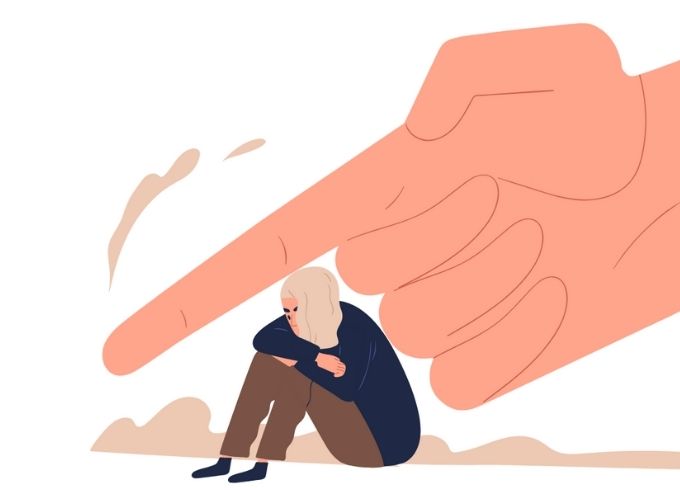
- Avoiding professional activities that require contact with others for fear of being criticized, ridiculed, or rejected
- Therefore, performance at work or school is low to negligible.
- Patients feel inadequate, inferior, disliked, have low self-esteem, and are constantly afraid of being fooled
- Feel overwhelmed by the slight disapproval or criticism
- Once they realize that another person accepts them without any criticism and supports them, they can move on to a closer relationship
- Due to the feeling of personal inadequacy, consider themselves socially awkward, repulsive, or inferior to others
- Are particularly reluctant to take personal risks or start new businesses because they may find themselves in a difficult position that will embarrass them
- They have a strong desire for affection and are often frustrated by their loneliness and inability to socialize comfortably with others
Addictive personality disorder
- Patients have a strong need for others to take care of them; they feel insecure about the ability to take care of themselves
- Submissive and dependent behavior and the fear of separation from others
- Relying always on others, be it the parent, the friend, or the partner, for the primary or daily decisions of his life
- Trembling at the idea of not being left alone because they're afraid that they can't cope
- Reluctant to express opinions, even if they have, for fear of offending others in need
- Lack self-confidence
- They are pessimistic
- Have limited social and professional functioning
- They're looking for new sexual partners very quickly after the end of a relationship as a source of care and support

Obsessive-compulsive personality disorder
- Obsessed with the order, perfectionism, and control
- They are highly conscientious, careful and analyze all aspects of an issue which makes it challenging to make decisions
- The compulsive person is too busy with lists, rules, and trivial details, can not calculate his time well, and often leaves their obligations at the last minute
- Responsibility phobia, which causes discomfort, and rarely does the patient feel satisfied with their achievements
- They feel uncomfortable with situations they can not control
- They feel unable to complete tasks due to the high demands they have placed on themselves
- Overly committed to work and productivity
- Overly conscientious, rigid, and attentive to ethical and value issues
- Avoid getting rid of worn or useless items even if they have no emotional value
- Hesitates to share tasks with others or work with other people unless they fully comply with the way things are done financially is very sparing both about themselves and others
- Save money for future difficulties
- Show lack of flexibility and assertiveness
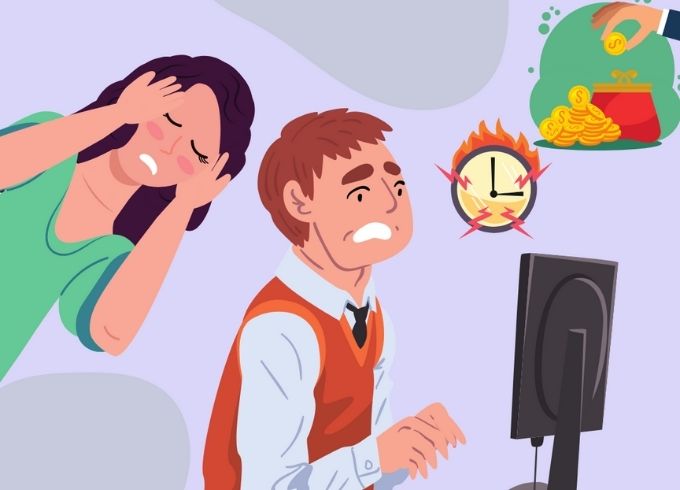
Anxiety disorders usually accompany Obsessive-Compulsive personality disorder. Individuals with this disorder are very successful in science and other demanding fields where order and attention are essential. On the contrary, good human relationships are not typical of compulsive individuals.
Treatment
Treatment for personality disorders includes psychotherapy and medication. Psychotherapy usually lasts at least six months to a year, or much longer, depending on the severity of the condition and other existing problems. Individual and group psychotherapy are equally effective in treating these disorders.
However, there is no one-size-fits-all approach, and treatment should be tailored to the individual. Therapists help the patient understand these problems and relate to personality traits. Patients are trained in new skills to interact better and learn to manage the issues in their daily lives. Some mild to moderate personality disorders can only be improved with psychotherapy without medication intervention.
The main medications given to personality disorders are antidepressants, anxiolytics, psychotropics, and anticonvulsants. Personality disorders do not respond well to medication, although some are effective in specific symptoms.
Why are Personality Disorders so stigmatized? Where does the stigma come from?
If the stereotypes that prevail in society around mental disorders are many and varied, in the case of personality disorders, in particular, we encounter most. People with this type of disorder are characterized as dangerous, incompetent, and unreliable. They are uncorrected ''crazy'' people whose opinion does not count.
The popularization of mental disorders in everyday life plays a huge role. Including specific terminology and scattered information about mental disorders in the daily conversations and discussions of people who are not familiar with this field has done more harm than good. Mentioning incomplete information in a debate creates confusion about what it means to have a particular disorder and a misunderstanding of its symptoms.
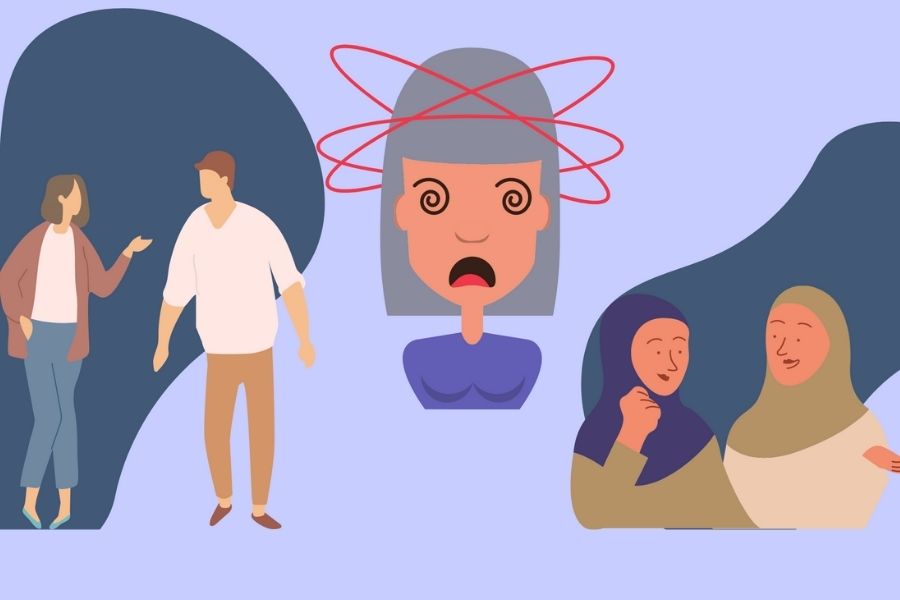
This is how semi-learning is promoted, which provides a distorted approach to mental disorders. Semi-learning in the case of personality disorders distracts people from the actual knowledge of what it means to have a disorder, and stereotypes are created around specific characteristics. Typical examples are the various jokes often heard in conversations: "What you say is paranoid" because it expresses something that seems exaggerated to the other, or "you are so narcissistic" a phrase addressed to a person who just likes to take selfies.
In this way, the heaviness and severity of these disorders are reduced, and consequently, the experience of the people who suffer from these disorders is underestimated. Disorders are stigmatized since they are widely used for nothing, therefore the person who carries them.
The media, which has often presented the image of an offender or murderer as "schizophrenic" has a share of responsibility in all the misfortune and consequently stigma around the disorders.

Crime and delinquency are constantly linked to personality disorders and disorient the world from the real motives of the perpetrators. As a result, the tale of the danger of people with personality disorders is perpetuated. Studies of such cases have shown that people with schizophrenia, for example, are more likely to be the same victims of violence than to have the role of perpetrator.
How does stigma affect?
The stigma surrounding personality disorders can have several negative effects. Initially, the person with the disorder accepts the stigma and is marginalized. These people are excluded from society as they are considered violent and abnormal. As a result, these individuals find it difficult to form social relationships and feel integrated and not a part of the whole. Their self-esteem is negatively affected, and their rejection hurts. In addition, stigma can even affect the survival of these individuals, as they find it difficult to find work and home, resulting in a struggle for essential goods.
In turn, society is kept "clean" and two false categories are created: the mad and the normal. In this way, a gap is formed between people, and division is promoted. Diversity becomes something that is fought, and society returns to backward views and attitudes. The difference is missing from society, as is critical thinking.
Because of the stigma, many people who experience some symptoms and feel discomfort avoid going to mental health services. And this is because they do not want to be exposed or confirm to the hostile environment that something is wrong. This decision delays their healing process and wastes valuable time, worsening a disorder.
The frequency of personality disorders in the general population ranges from 10-15%. There is no clear discrimination on sex, socioeconomic status, and race. Some personality disorders are more common in men, such as antisocial and obsessive-compulsive disorder, while others are more common in women, such as borderline and histrionic.
How to fight the stigma around Personality Disorders?
1. Awareness is everything!
The first and most crucial step in eliminating the stigma in personality disorders is to get informed. Only when you know can you act. Learning about specific disorders (such as reading this article) makes it easy to identify and helps coordinate the appropriate anti-stigma measures! Learning can be done either by searching your sources and media (internet articles, books, magazines) or by approaching the right places (mental health center workshops) and the right people (forum experts, acquaintances who have experience or contact) that will offer you knowledge! Also, it would be a good idea for similar issues to be joined in schools where frequent updates on mental health issues can be provided.

2. The role of the media
Another critical step is the intervention of the media. Avoiding stigma perpetuation practices (as mentioned above) and promoting reasonable and realistic standards help address stigma. Through shows where reliable information is given about personality disorders, bringing even people who have the experience, people will get acquainted with them and get to know their fundamental aspects.
3. Community building
To raise public awareness and coordinate actions to address the stigma, it would be beneficial to organize events in neighborhoods and communities with content related to mental health and where mental health professionals can be invited. Bring your family, your friends, and whoever you want. At these events, the goal will be to get to know people, create a community and close bonds, and eliminate fear or prejudice regarding personality disorders. In this way, due importance will be given to mental health and, knowing that someone has the support of people around them will provide the power and courage to visit a mental health specialist for those needed! Only when visibility and speech are present do things get better!
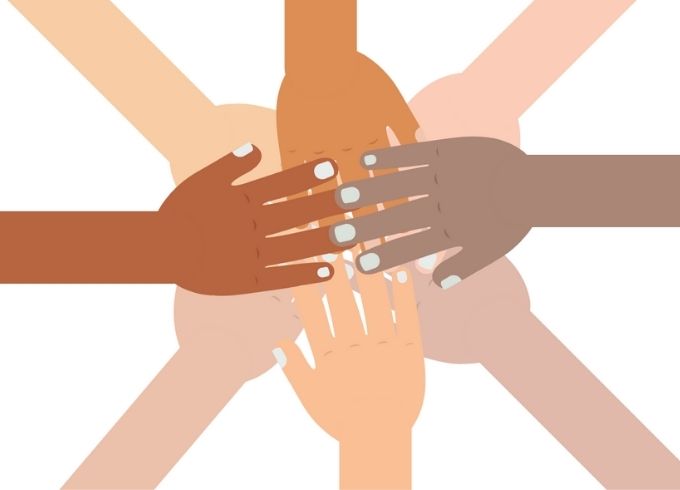
4. More accessibility, more affordability
Another powerful way to handle the moment of personality disorders as part of mental health disorders is to make more accessible and affordable mental health services. This means creating more centers and places where treatment is provided so that everyone can feel safe that such a place is near them at all times. In addition, it is important to provide funding and reduce the amount that patients pay; like this, there will be no discrimination criteria in terms of financial part.
In conclusion
Εvery human being on earth has their own unique personality. The realization is that even people diagnosed with the same disorder have different ways of experiencing and manifesting the same disorder symptoms. This realization helps in thinking that nobody loses their identity even when they are put with other people under a category. Categorization should only help concentrate the symptoms to provide the appropriate treatment and not develop stigma around personality disorders.
Keep in mind that the disorder with which someone is diagnosed isn't all there is! There are many more aspects of their life to focus on!
Get to know us more!
If you would like to get involved in this initiative and be a part of history in the making, feel free to shoot us an email at contact@buddyhelp.org, or browse our website to discover all of the many ways you can join our BuddyHelp family and make a difference in the world.

